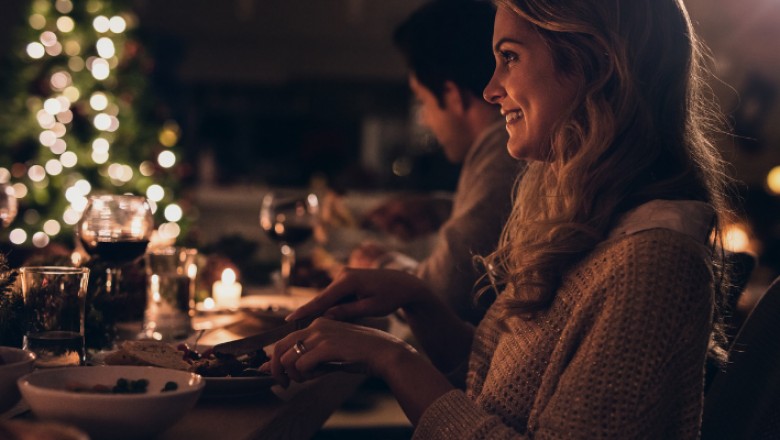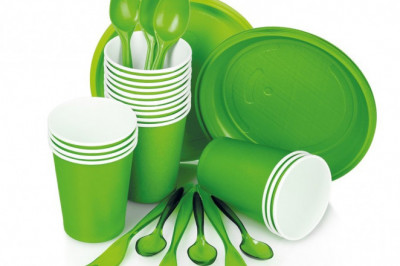views

Staying Sober During the Holidays: 8 Tips to Avoid Addiction Temptation
A Season of Stress:
The winter holiday season can be a triggering period every year for individuals struggling with addiction and mental health. Whether their struggle involves alcohol or even sugar, the seasons’ emphasis on consumption can lead many off their road to recovery. Many triggers such as stress, isolation, money worries surrounding gifts, old memories, and unstable family relationships are capable of making addictions worse or creating feelings of powerlessness. Even more, if those with addictions are surrounded by others partaking in certain triggering activities, they may feel as if they have a free pass to use again. While we’ve previously written about managing stress and anxiety during COVID-19, the holidays create an extra layer of social stress.
Holidays are a Double-Edged Sword:
The holiday season can be like a double-edged sword. On one hand, depression rates increase dramatically during the winter holidays and are most likely prompted by “loneliness, financial pressures, or simply exhaustion.” (Donnelly, 2007) On the other hand, however, the season is also portrayed as a time of joy, happiness, spirituality, and family time. It can be difficult for those with addictions to cope with feelings of loneliness during a period that places such high emphasis on togetherness.
A qualitative study analyzing holiday experiences asked 26 families to recall their fondest holiday memories and to describe their “successful” holiday (Gram, 2005). They found that families credited togetherness and support in truly creating their most “successful” holidays. This study stresses the importance of support towards those struggling with addictions or other problems especially during this time of the year.
Moreover, another study discovered that the more people participate in family holiday rituals, the more positive and social well-being they feel (Páez, Bilbao, Bobowik, Campos, & Basabe, 2011). These people also feel more satisfied with their family climate and feel less lonely. However, if they experience conflict during their holiday rituals, their satisfaction with family, life, and emotional health are significantly lower.
Families must be vigilant to not forget those loved ones in need of extra help during this time of the year. Creating a sense of family and closeness may be pivotal in helping those on the road to recovery. It can be hard enough to stay motivated during quarantine, let alone for something as serious as fighting addiction. If families are willing to accommodate those struggling with addiction and plan ahead, the holidays may become a much less stressful time for millions of people.
Alcohol Addiction’s Widespread Effect:
In the United States, 1 in 8 Americans struggle with alcohol abuse (Schuckit, 2017). The most obvious reason that the holiday season is particularly difficult for addicts is due to its connotation with drinking alcohol. In fact, most major holidays and celebrations are associated with alcohol consumption and oftentimes excessive intoxication. Think of bachelor parties, Halloween, birthdays, and New Years’ Eve celebrations.
A study on college students specifically found that they consumed significantly higher levels of alcohol during holidays and celebrations (Glindemann, Wiegand & Geller, 2007). These trends of heavy intoxication were also true for other holidays such as Halloween and St. Patrick’s day. Thus, it is clear that holidays and celebrations place cultural significance on alcohol. But what happens when someone cannot participate in these seemingly obligatory rituals during the holidays? People struggle with their addictions even more during the holidays because of this pressure to participate in certain rituals.
Other Addictions:
Alcohol abuse is not the only addiction that may be triggered during the holiday season. Although drinking may seem like the most obvious addiction-provoking activity during the season, unhealthy or excessive eating can also be incredibly damaging to those struggling with poor eating habits and disorders, or those simply trying to maintain their weight loss.
Food addiction is extremely real and common, especially in the United States. According to a recent study, 49.1% of adults in the U.S. are trying to lose weight and have been struggling for the past year (Martin, Crescent, et al, 2018). Even more, of this 49.1%, 62.9% of them used “eating less food” as their method for weight loss, along with 50.4% of them attempting to eat healthier with more fruits, vegetables, and salads. The holiday season is not particularly known for its small proportions and healthy dishes. People may feel pressure to lose track of their diets or healthy eating habits in order to fulfill certain holiday traditions.
Overall, it is important to be conscious of everyone’s needs and struggles during this time of the year. While it may seem impossible to cater to everyone’s needs, there are steps to better prepare for the holidays along with ways to alleviate stress for those struggling with addiction.
4 Tips for Staying on Track:
4 Tips for Accommodating Loved Ones:
Remain Mindful:
For anyone who knows someone facing these challenges, it is crucial to remain mindful during the holidays. This time of the year could be the perfect opportunity to build trust with anyone struggling with addiction and to show your love and support for them. Remember that if you are trying to help someone with an addiction, you can only do so much. If you are the one with the addiction, then it is within your power to become sober and take care of your mental and physical health.
LIFE Intelligence:
Sometimes triggers can happen in an instant, and having immediate support is key. If you're interested in a pocket problem-solver for certain feelings and frustrations that come up, try out mental health app LIFE Intelligence. We're a free download, allowing you to track moods and habits and ground yourself with therapy and coaching techniques. These help your goals feel closer to home, and temptations less overwhelming in the moment. Download for iOS or Android.
Support can also be a great tool for managing stress. As mentioned previously throughout this article, having a sense of community and closeness is a pivotal step in the recovery process. LIFE Intelligence provides a9-step (Mission) program for handling your whole self, career, and relationship success. You can read more about how social support can relieve stress in Mission 6.3 of the app.
Happy Holidays Everyone!
References
Donnelly, G. F. (2007). Happiness and the holidays: Reframing seasonal stress. Holistic nursing practice, 21(6), 283.
Foote, J., Wilkens, C., Kosanke, N., & Higgs, S. (2014). Beyond addiction: How science and kindness help people change. Simon and Schuster.
Glindemann, K. E., Wiegand, D. M., & Geller, E. S. (2007). Celebratory drinking and intoxication: a contextual influence on alcohol consumption. Environment and Behavior, 39(3), 352-366.
Gram, M. (2005). Family holidays. A qualitative analysis of family holiday experiences. Scandinavian Journal of Hospitality and Tourism, 5(1), 2-22.
Martin, Crescent B., et al. "Attempts to Lose Weight Among Adults in the United States, 2013–2016. NCHS data brief, no 313." National Center for Health Statistics, Hyattsville (2018).
Páez, D., Bilbao, M. Á., Bobowik, M., Campos, M., & Basabe, N. (2011). Merry Christmas and Happy New Year! The impact of Christmas rituals on subjective well-being and family's emotional climate. Revista de Psicología Social, 26(3), 373-386.
Schuckit, M. A. (2017). Remarkable increases in alcohol use disorders. JAMA Psychiatry, 74(9), 869-870.
By Olivia Simon












